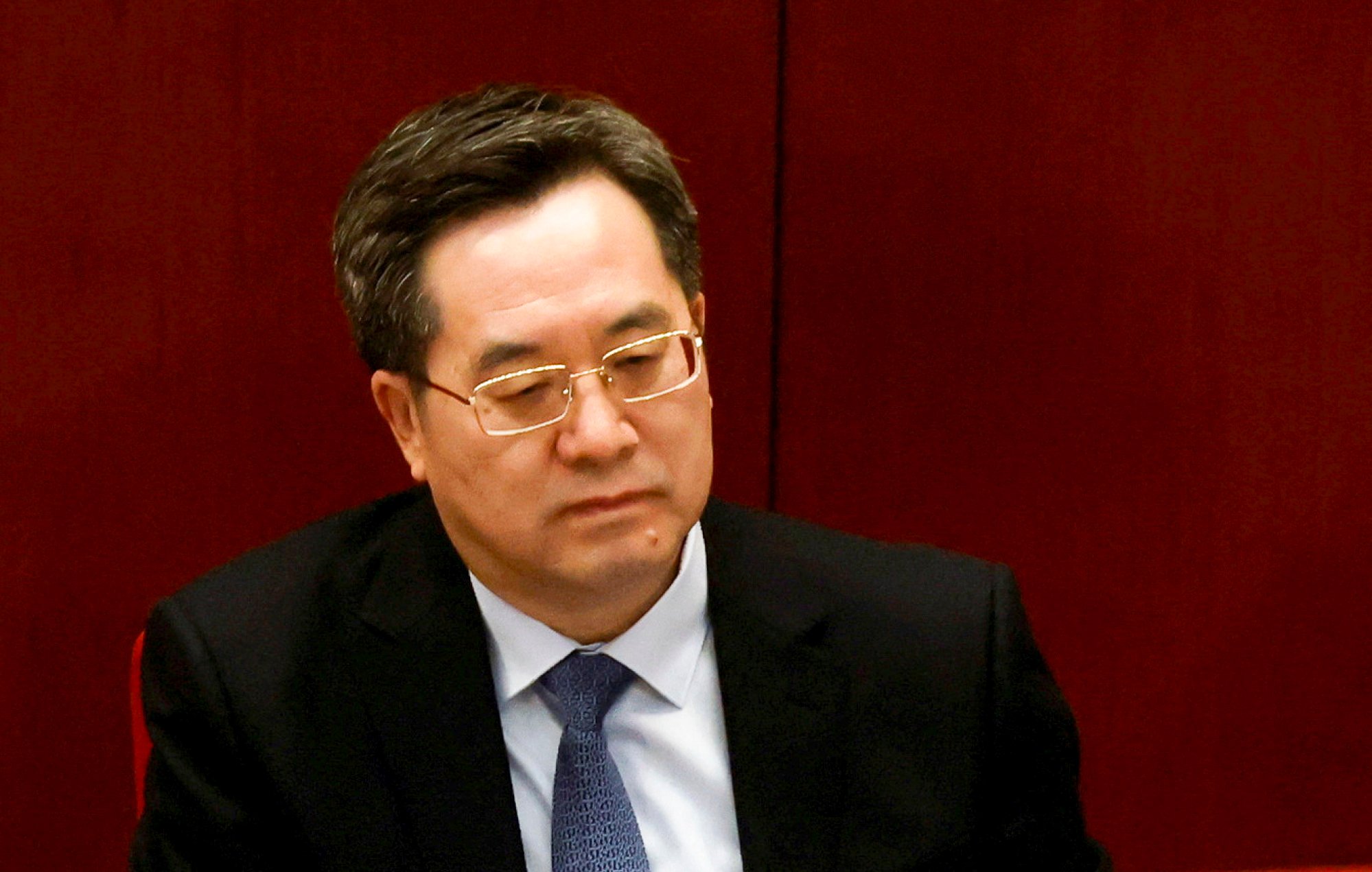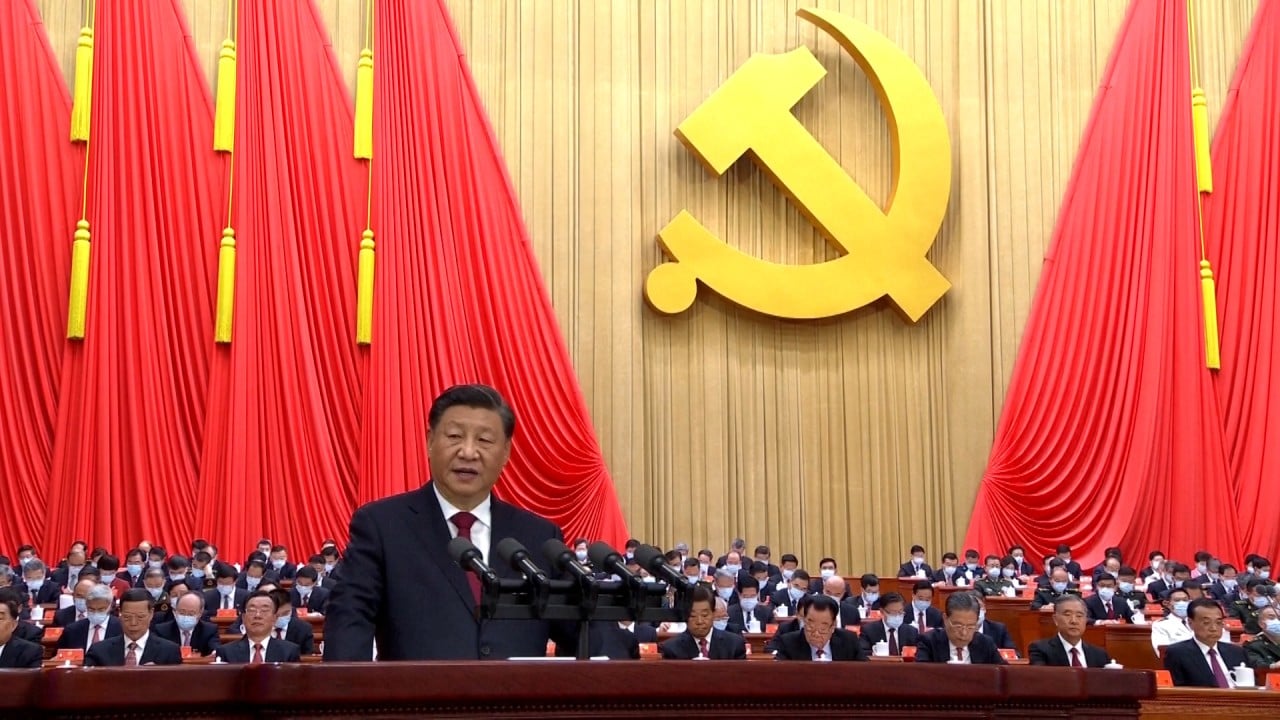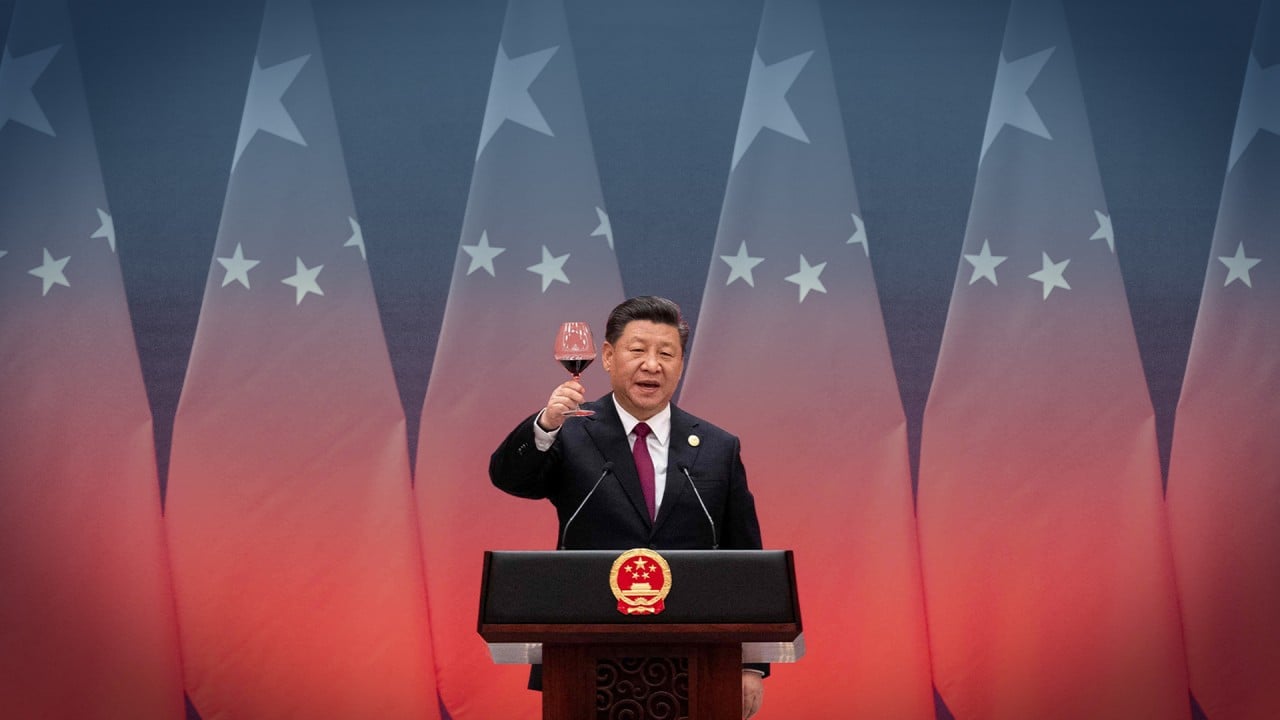
Ding Xuexiang, ‘Xi’s most trusted aide’, joins party’s top decision-making body
- President’s personal secretary becomes youngest member of Politburo Standing Committee
- One expert says Ding’s age makes him a contender to succeed Xi in 10 years’ time
He was also part of the small entourages led by Xi to Hong Kong for the commemoration of the 25th anniversary of its handover in July, and Xi’s first trip outside of the country in two years, to Kazakhstan in September.
What Xi Jinping’s shortened congress work report did not mention
Despite lacking experience as a provincial party chief or governor, Ding, 60, director of the General Office of the Communist Party of China and Xi’s personal secretary, has made it to the seven-man Politburo Standing Committee, the party’s top echelon of power, and is its youngest member.
“Ding is Xi’s most trusted aide,” Neil Thomas, a senior analyst for China and Northeast Asia at the Eurasia Group said. “He accompanies Xi to virtually all of his official engagements and is responsible for managing his agendas, briefings and meetings. Perhaps no one has spent more time with Xi in the last five years.”

Ding, whose family hails from Nantong, a city in Jiangsu province just north of Shanghai, was a child and adolescent during the chaos of the Cultural Revolution from 1966 to 1976. He enrolled at a university in the northern province of Hebei in 1978 and graduated with a bachelor’s degree in engineering four years later. About a decade later, he acquired a master’s degree in public administration from Shanghai’s prestigious Fudan University.
After 14 years at the Shanghai Research Institute of Materials, most of them in party positions, Ding was appointed deputy head of the Shanghai Municipal Science and Technology Commission in 1999, putting his political career on a steady track of advancement.
In 2007, Ding became secretary general of the party committee in Shanghai. That same year, Xi was transferred from Zhejiang province to become party chief of Shanghai for a little over half a year and they worked together during that time. Ding was then promoted to party chief of Shanghai’s political and legal committee, which is responsible for law enforcement in the financial hub.
China’s ideology tsar Wang Huning tipped to head National People’s Congress
The personal secretaries of party leaders traditionally have a low profile and present a humble image in public, but the bespectacled Ding has had a determined air in interviews with state media and spoken sharply and sternly while defending Xi’s leadership.
In an article written for a policy pamphlet after the fourth plenum of the party’s 19th Central Committee concluded in November 2019, Ding wrote that the “Two Safeguards” meant “safeguarding the core position of General Secretary Xi Jinping, instead of anyone else; safeguarding the authority and leadership of the party’s Central Committee, instead of any other organisations.”
The “Two Safeguards” were written into the revised disciplinary regulations of the party in 2018.
In the article, Ding slammed the poor implementation of Xi’s policies at local levels. Some places and departments “did not care” about implementation, “pretended” to take action, “made alternatives” or “ended up with empty talk”, and all these problems should be rectified, he wrote.
During the week-long party congress that concluded on Saturday, Ding joined his peers in hailing Xi’s achievements in the past decade and pledged support for the “Two Establishes” in his speeches in panel discussions.
The “Two Establishes” concept was included in a historical resolution adopted by the Central Committee in November last year. It refers to establishing Xi’s status as the party’s “unquestionable core leader” and establishing his political doctrine as the “guiding principles for a new era” of the party.
Congress delegates embrace Communist Party slogan pledging support for Xi
Chen Daoyin, an independent political scientist who was formerly a professor in Shanghai, said: “Judging from his speeches and articles, Ding has been persistently toeing the ‘political correctness’, showing no political vision or aspiration of his own yet, which is a common practice by China’s party cadres.
“He’s neither a technocrat nor a princeling with the ‘Red Gene’. He lacks experience governing a province. It may make him more democratic in making decisions.
“He’ll be a contender to succeed Xi in 10 years’ time, thanks to his age, though it’s too early to forecast anything in China’s opaque politics.”



